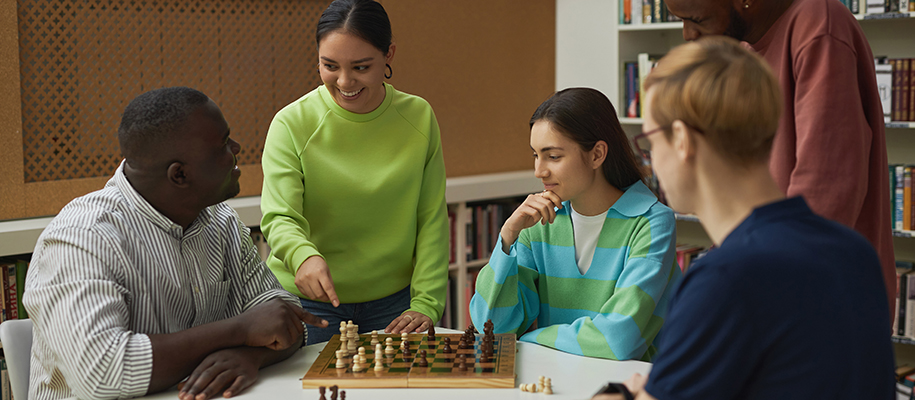Chess is one of the most popular board games of all time because it’s timeless—but did you know it has a variety of benefits regarding your success in school and beyond? Chess, specifically in tournament play, can help develop a student’s skills through the visualization of concepts, complex piece movement, socializing with fellow players, and the calculation of tactical strategy sequences. As a hobby or competitive sport, chess can be very beneficial to academic success by refining these key skills.
1. Attention and focus
One obvious benefit of playing chess is an enormous improvement in your focus. Many new players to the game have trouble focusing for such long periods of time, but you’ll develop a stronger attention span through consistent practice and play, as chess games can range anywhere from five minutes to 20 hours. By refining these skills with chess, you’ll help yourself with general academics like test taking and staying focused in class. This is essential to grasping lessons completely without letting your mind wander off, which then allows you to do your best on test days.
2. Critical thinking
According to Richard Teichmann, a famous German chess master, “Chess is 99% tactics.” For those who don’t know, tactics are common chess maneuvers and calculations to either find a winning move or position, stop an opponent’s attack, or just find the best next move. Advanced players go through layers of calculation for each move in classical chess (25 minutes for each side or more), which helps students develop critical-thinking skills. These calculation skills developed through chess can be applied to a variety of academic activities, including mental math, situational analysis, and “if/then” problem-solving.
Related: 9 Tips for Developing Soft Skills Before Graduation
3. Working under pressure
Many activities and exams like the SAT are made even more difficult by narrow time constraints. In many competitive chess games, the peak of the game—the time when the most decisive (and hardest to find) moves are made—occurs when a player is much lower on time. When the clock is about to run out and the position seems way too hard to win, chess players must develop a sense of urgency and extreme focus to create their best winning chances. This is analogous to the end of a test in school, where you may possibly have the hardest questions left but the bell is about to ring for your next class. Thriving under pressure is a skill that’s very helpful in school and beyond.
4. Strong mentality
One of my biggest challenges for success in school isn’t the content, assignments, or tests, but rather getting in the mindset to learn and pushing myself to give it my all. No matter the assignment, any procrastination—even just letting my mind wander—seems more entertaining than any part of school, but we all have to stay focused to be academically successful. Similarly, becoming a successful chess player requires not only skilled play over the board but countless hours of studying the board. The required preparation needed to play chess is synonymous with both homework and studying for a class. That’s why years of studying chess can greatly benefit the mentality of a student for their schoolwork.
Related: 7 Easy Ways to Make Your Semester More Mindful
All in all, students will encounter a plethora of educational benefits by participating in competitive or even casual chess. By learning these essential skills, you can become a star student with increased focus, stronger critical-thinking skills, the ability to work well under pressure, and a better learning mentality. Pick up a pawn and give it a try!
Eager to hone your academic skills even more? We’ve got a lot more information for you with Our Best Advice on Building Important Skills as a Student!





